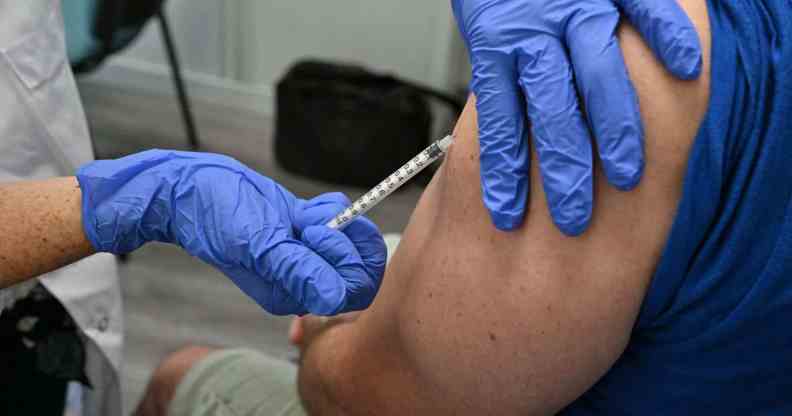Monkeypox: Mexico and Peru report rare deaths as global outbreak shows signs of decline

The monkeypox outbreak has showed signs of decline worldwide. (PASCAL GUYOT/AFP via Getty Images)
Mexico and Peru have joined a growing list of countries where people with monkeypox have died as the global outbreak slows down.
Mexico’s health ministry said Tuesday (23 August) that health officials were investigating the death of someone living with HIV that tested positive for monkeypox.
The patient passed away from septic shock and pneumonia, the ministry added according to Reuters. Mexican experts stressed the man did not die of monkeypox.
Cuba’s Ministry of Public Health confirmed that an Italian tourist passed away on 21 August only one day after recording its first case.
The 50-year-old man travelled across the island for only three days before developing symptoms including skin lesions before his condition rapidly deteriorated.
A post-mortem “showed the cause of death was sepsis due to bronchopneumonia”, or pneumonia of the lungs, as well as organ failure. Health officials did not attribute the man’s death to monkeypox, where deaths remain rare.
“Through the studies carried out from the beginning to look for possible associated causes that may have conditioned his seriousness, other pathologies and infectious aetiology were ruled out,” it added.
The ministry said that the man’s close contacts are in isolation and have yet to show any of the disease’s hallmark symptoms.
According to the Centers for Disease and Prevention, there have been at least 13 confirmed deaths since the outbreak began in May. With Mexico and Peru, this brings up the death toll to 15.
Deaths of the virus remain very rare, with deaths of monkeypox patients so far confirmed in Peru, India, Brazil and Spain.
The Pan American Health Organisation has confirmed 25,000 monkeypox cases in the Americas.
Like in many other parts of the world, Mexico’s monkeypox cases have so far been recorded disproportionately among men who have sex with men, according to the country’s Institute for Epidemiological Diagnosis and Reference.
More than 99 per cent worldwide of those infected have been men who have sex with men, prompting health officials to roll out targeted public messaging and vaccination campaigns.
But worldwide, cases have been steadily slowing down. With more than 46,000 confirmed cases worldwide, the World Health Organization (WHO) found cases had dropped by 21 per cent in the past week, sparking hopes that efforts to contain the outbreak are proving successful.

